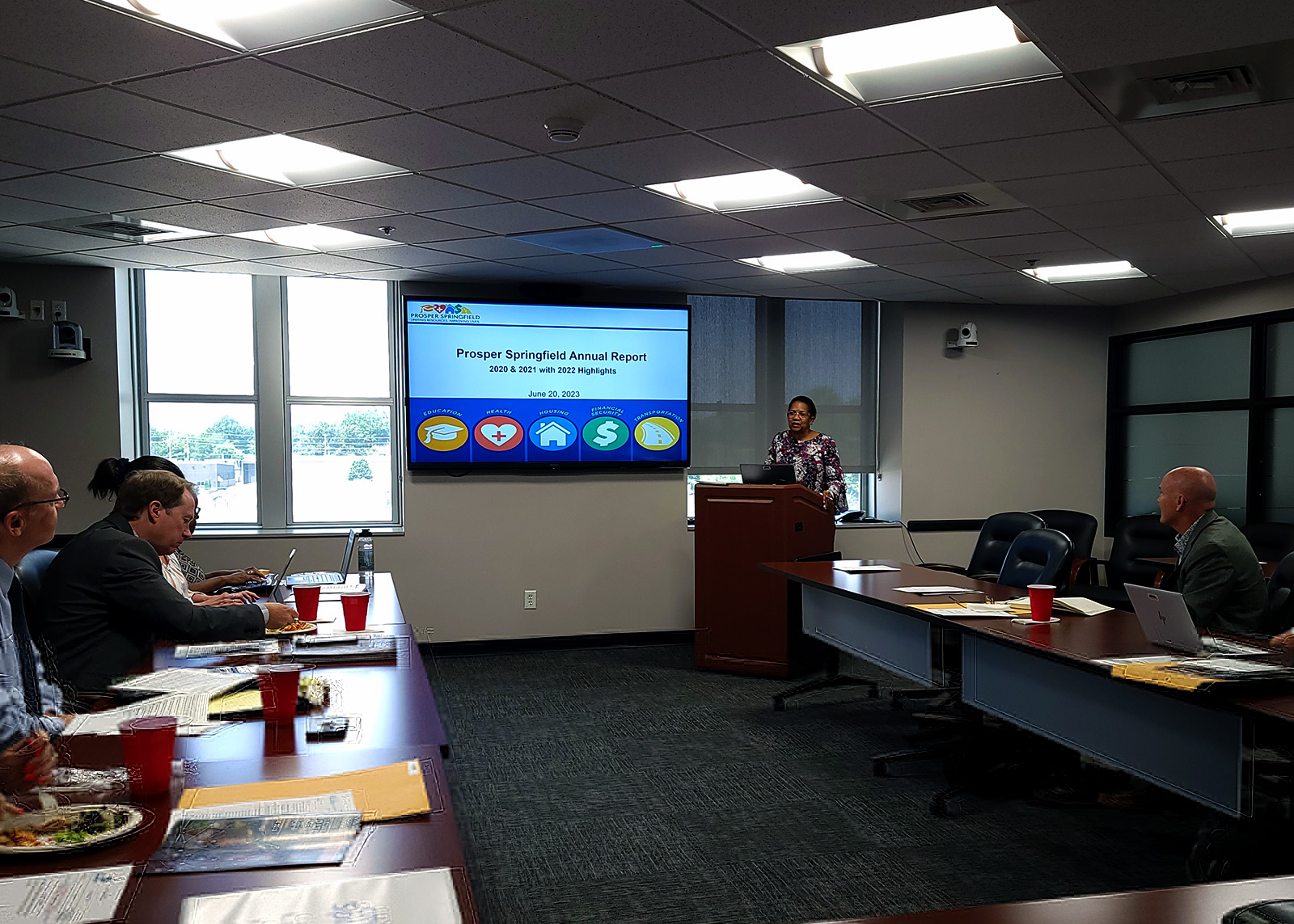OPINION|
Pride Month is celebrated each June in tribute to patrons of the Stonewall Inn: A gay club in New York where a police raid took place in June 1969, followed by riots and protests seeking the right to live openly without fear of being arrested.
Earlier this month, Springfield City Council approved a resolution in support of LGBTQ constituents to recognize Pride Month and affirm the city’s commitment to apply the five pillars of change adopted in the 2022 Mayor’s Initiative on Equity and Equality. Those pillars are:
- Dialogue and Understanding
- Cultural Consciousness
- Advocacy and Partnerships
- Structural and Systemic Barriers
- Personal and Organizational Accountability
The resolution to continue collaboration with LGBTQ constituents was reaffirmed at the City Council lunch meeting June 20. The lunch meeting focused on a presentation by Prosper Springfield to update City Council on the two community goals to reduce poverty and increase educational attainment beyond high school.

During the lunch meeting, there were discussions about intersectional groups and how access to services and resources are not always available to some populations. Reference was made to the Mayor’s Commission on Human Rights data included in the Equity and Prosperity Commission’s July 2022 community action plan.
As a presenter at the lunch meeting, it was clear to me the role of the City Council by approving a resolution as they have done historically for other intersectional groups. It is important for our elected officials to recognize the need to improve the inherent dignity, value and worth of each individual who resides in Springfield.
If not the Council, then who should ensure civil rights and human rights?
Not everyone feels the same way and even some folks in the community believe it is not the City Council’s role to issue resolutions of this nature. However, elected officials are elected by those who they represent, so if not them, then who should ensure civil rights and human rights are protected and administered for all who call Springfield home?
When I worked in higher education I was asked by a group of students if they could have a safe space to meet with each other on campus. Initially, I did not understand the request because it was a public university and I believed they should have the same access to space as anyone else. I thought this would be a simple request because leadership supported the request and there were several vacant offices and conference rooms to utilize for this purpose.
However, when the space was publicly announced, backlash was received on campus, off campus and from the church I attended at the time. My Christianity was questioned by some, and others did not believe such a space should be established.
Much was learned after researching concerns and issues raised on campus and in the community. From the Bible, there was scripture related to loving thy neighbor as we love ourselves. Review of the Civil Rights Act of 1968 demonstrated discrimination was prohibited.
Lastly, consider the definition of human rights — the fundamental rights to which a person is inherently entitled simply because he, she or they are human beings. Historically, there were times when certain populations were not recognized or treated as human beings. There was even a time when certain males were only counted as 3/5ths of a human being.
Progress has been made; more will come with seeking to understand
Our nation has done better to rectify what was wrong and locally I see the same.
Approaches to making our community safe and accessible for all who continue to reside here require cultural and intersectional based approaches with a focus on ethnicity/race, age, economic background, geography, gender, and other intersectional population identifiers, such as individuals with disabilities, immigrants, LGBQT, previously incarcerated, refugees, returning citizens, veterans, and women.
That goes along with listening to and reading individual lived experiences to understand situations and insight to someone else’s experiences. Several lived experiences from the Mayor’s Commission on Human Rights are reflected in the Equity and Prosperity Commission’s July 2022 Community Action Plan.
People can maintain their own beliefs and still love thy neighbor.


